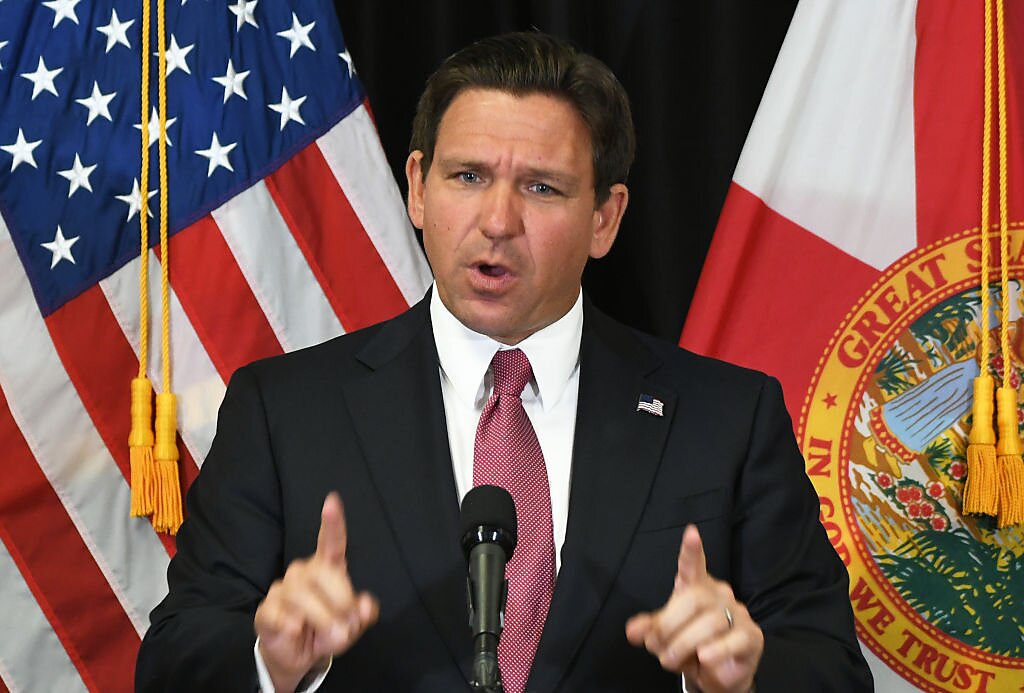Florida Governor Ron DeSantis has expressed strong support for eliminating property taxes in the state, calling them an “oppressive and ineffective” form of taxation. The idea, which would require a constitutional amendment and approval from at least 60% of voters, has sparked a heated debate among lawmakers, economists, and local government officials.
Legislative Proposal and Feasibility Study
State Senator Jonathan Martin (R-Fort Myers) has introduced Senate Bill 852, which mandates a study on the feasibility of eliminating property taxes in Florida. The study, conducted by the Office of Economic and Demographic Research, would explore alternative revenue sources, such as increasing sales taxes, to offset the loss of property tax revenue. The findings are expected to be delivered to the Florida Senate and House by October 1, 2025.
DeSantis, who has been vocal about his concerns regarding rising property taxes, stated that the current system places an undue burden on homeowners. He argues that people should not have to pay the government annually for the right to use their own property.
Implications for Local Governments and Public Services
While supporters of the proposal see it as a way to reduce the financial burden on homeowners, critics argue that property taxes are a primary funding source for essential services such as education, public safety, and infrastructure. The Florida Policy Institute estimates that eliminating property taxes would require lawmakers to find $43 billion in replacement revenue.
Local officials have voiced concerns over the proposal, warning that a shift to a sales tax-based system would disproportionately impact lower-income individuals while failing to provide stable funding for municipalities. Tampa City Council member Luis Viera called the proposal “perhaps the worst idea of the year to come out of Tallahassee,” emphasizing that local property taxes fund police, fire departments, and schools.
The Role of the DOGE Task Force
As part of his broader efforts to curb government spending, DeSantis has introduced the Department of Government Efficiency (DOGE), a task force aimed at auditing local government budgets. The governor suggested that excessive spending at the local level has contributed to property tax increases and that DOGE’s findings could provide justification for eliminating these taxes altogether.
The proposed task force would use artificial intelligence to analyze county and municipal budgets, with findings presented in a clear and accessible format for taxpayers. The governor has been in discussions with House Speaker Daniel Perez and Senate President Ben Albritton about granting the task force enforcement powers to ensure local compliance with financial transparency measures.
Path Forward and Public Reception
The idea of eliminating property taxes remains in its early stages, and the feasibility study will be crucial in determining the next steps. Past attempts to abolish property taxes in other states, such as North Dakota, have failed due to concerns about lost revenue and the impact on public services. However, with property values rising rapidly, homeowner frustration with escalating tax bills is growing.
If the study determines that eliminating property taxes is viable, the issue would go to Florida voters as a constitutional amendment. DeSantis has encouraged lawmakers to craft the “boldest amendment” that has a realistic chance of securing the required 60% approval.
While some Floridians welcome the idea as a means of financial relief, others remain skeptical about the long-term consequences. With the 2025 legislative session approaching, the debate over property taxes is set to become a central issue in Florida politics.






